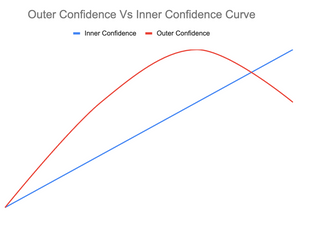
The Unseen Enemy of Great Leadership: Perfectionism
Sep 6, 2024
2 min read
0
5
0
We all know the trope of job interviews.
Interviewer: Tell me your greatest weakness. Interviewee: Perfectionism.
Well it turns out, perfectionism may be a more of an actual weakness than the prototypical interviewee expects.
This post focuses on one mental model for leaders — perfectionism as a tool for success. Many people who are extremely successful have risen to their level because of this trait: striving to be not just better, but Best — in their class, at work, on their sports team. It’s an effective tool to reach the top.
Ironically, it can also deter growth. Perfectionists have developed a mental model that says: if I’m not perfect, I’ve failed, A or F. Although they understand they are capable of making mistakes, doing so is a terrifying prospect, and a risk to their identity. So, they develop a concept of what perfect looks like and do everything they can to ensure they get it right.
But in leadership, there is no such thing as perfection. There is only evolution. As many experienced leaders know, with each new role, new team, new hire, new boss, new partner, new strategy or new month, the leadership requirements shift, and evolve. What worked yesterday will not necessarily work tomorrow.
To succeed through this change, a leader cannot have a concrete view of success. They must be malleable. They need to try, fail, learn, evolve. (This is often called the Growth Mindset.). Crucial to learning is not only being open to and receiving feedback but seeking it out, ACTIVELY and FREQUENTLY.
Now a perfectionist may be aware they should be open to feedback. They may even proactively ask for it. But doing so conflicts with their mental model of perfectionism, the one that rests on a model of pass/fail. And seeking feedback which invariably would result in a ‘fail’ is both difficult and terrifying.
A successful leader must completely let go of this aspect of their identity, and however: adopt a new mental model of success. Shift from perfectionism to malleability. I personally went through this process with the help of a career coach a few years ago, and it has momentously changed my perspective.
Are you a current or recovering perfectionist? How has it worked to your benefit or worked against you? How did you let go of this mindset?






